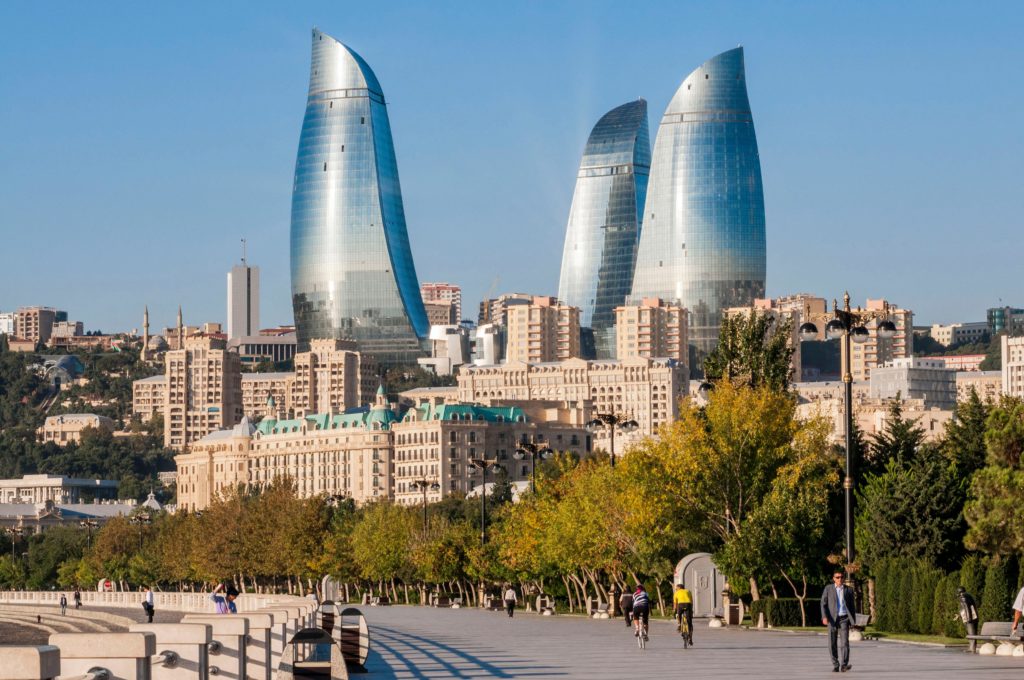BAKU
The Asian Development Bank (ADB) approved a $250 million loan to help Azerbaijan implement its plan to mitigate the adverse health, social, and economic impacts of the COVID-19 pandemic.
Measures to contain the spread of the COVID-19 pandemic that took hold last year, impacting mobility and production across the world, have significantly affected global demand for oil, forcing oil producers to eventually cut their production levels.
Oil-rich Azerbaijan also reduced oil production as pandemic, among other reasons, impacted demand and production. Lockdowns to control the spread of the virus in the ex-Soviet country have resulted in lower trade, diminished tourism revenues, a drop in remittances, and a decline in consumer demand.
“The continuing effects of the COVID-19 pandemic threaten to upend the significant gains Azerbaijan has made in improving its economy and reducing poverty,” Masatsugu Asakawa, ADB’s president, said.
The loan is funded through the COVID-19 pandemic response option (CPRO) under ADB’s Countercyclical Support Facility. CPRO was established as part of ADB’s $20 billion expanded assistance for its developing member countries’ pandemic response.
ADB will also provide $250,000 in technical assistance to support ongoing public financial management reforms in Azerbaijan such as a medium-term debt management strategy, rule-based fiscal management, and effective medium-term budgeting to ensure that these critical reforms are not derailed by the pandemic. The technical assistance will help strengthen the coverage and implementation of mandatory health insurance and the social security system.
ADB’s COVID-19 Active Response and Expenditure Support (CARES) Programme provides budget support for the government’s ongoing health, social protection, and macroeconomic stabilisation measures.
The government’s health measures include additional payments for health care workers, nationwide rollout of mandatory health insurance, procurement of medicines and medical equipment, and scaling up medical facilities’ capacity to test for and treat COVID-19 patients.
The Asian Infrastructure Investment Bank will provide a co-financing loan of $100 million to support Azerbaijan’s pandemic response along with the CARES Programme.
Azerbaijan’s government took steps to strengthen social protection amid the pandemic by increasing monthly allowances for low-income households and expanding the number of households eligible for support to 80,000. Other social protection measures include increased old-age pension payments, monthly allowances, subsidised utility services for internally displaced people, and interest-free loans to low-income families for higher education.
In addition, the government said it had created 17,000 temporary public jobs, interest rate subsidies for bank loans to businesses affected by the pandemic, and financial support for selected state-owned enterprises.
The ADB said in April that Azerbaijan’s economic growth was forecast to return in 2021 at 1.9 percent and accelerate to 2.5 percent in 2022 as demand improves at home and abroad. As consumer confidence is restored and petroleum receipts become available for public investment, growth in the petroleum industry is expected to be outpaced by expansion in the rest of the economy.
Inflation is forecast to accelerate to 3.5% in 2021, reflecting price increases of 10% for gasoline and 33% for diesel and a doubling of household water charges. A projected decline in domestic food prices should trim inflation in 2022 to 3.0%. Inflation could be higher if other utility tariffs are raised. The managed exchange rate regime should limit the impact of import prices on inflation.

